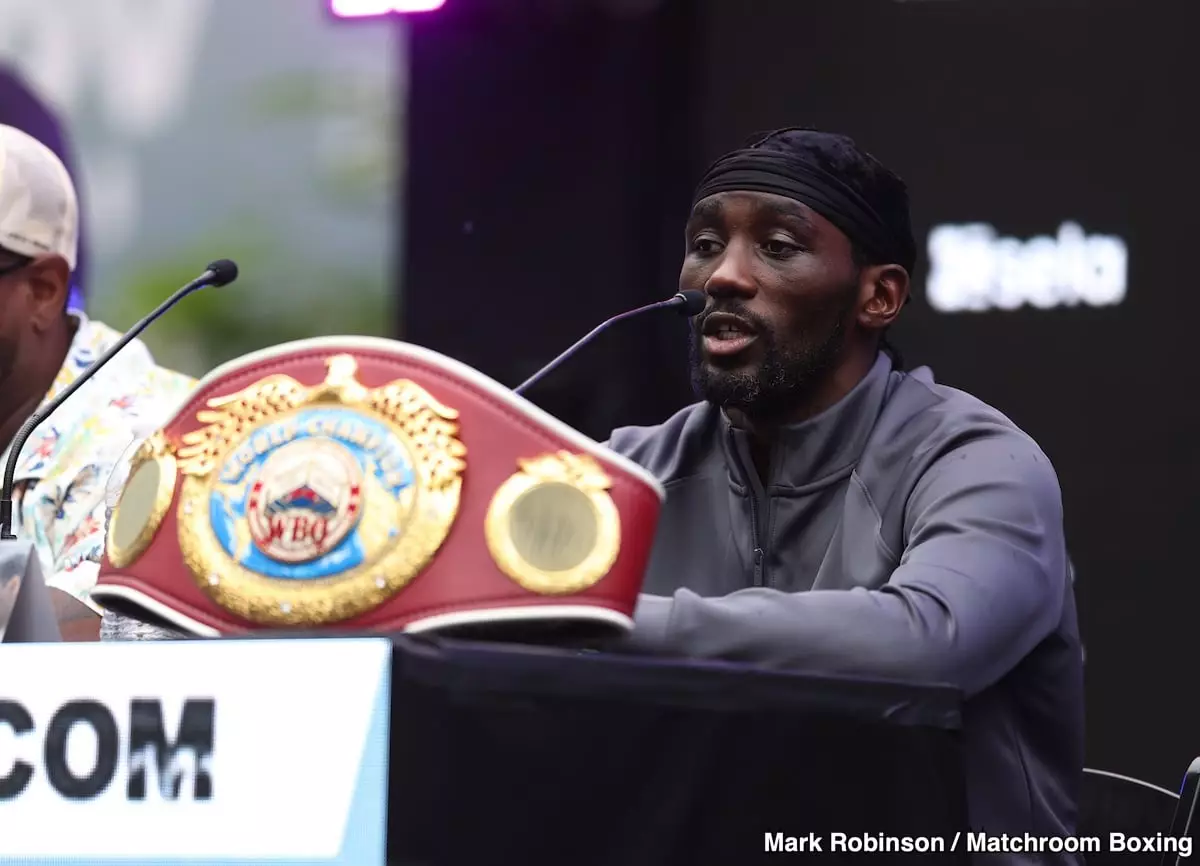The world of professional boxing is a relentless arena where fighters are often defined by their actions inside the ring. Recent comments from Canelo Alvarez regarding Terence Crawford’s legacy have ignited a heated discussion within the boxing community. Canelo’s assertion that Crawford’s record is largely inflated by facing inferior opponents raises questions about the authenticity of Crawford’s career achievements. This article delves into the validity of Canelo’s claims, analyzes Crawford’s opposition history, and evaluates what this rivalry means for the future of boxing.
Canelo Alvarez, a multiple-division world champion himself, has a well-documented history of challenging the best in the sport. His comment that Crawford has “only beaten one good fighter,” specifically referring to Errol Spence, sheds light on the disparity between their respective careers. While Crawford boasts an impressive record of 41 wins without a loss, Canelo’s assertion suggests that many of those victories were against opponents who lacked the caliber required to be regarded as elite.
Crawford’s emotional response to Canelo’s critique—highlighting his ability to make opponents look like “nobodies”—reveals a defensiveness that may indicate he recognizes the validity of the criticism. This dynamic begs the question: Are his victories hollow if they come from a lack of elite competition?
To fully understand Crawford’s standing, one must analyze the fighters he has faced throughout his career. The term “One Win Wonder” has been coined to describe his situation, suggesting that aside from the notable win against Spence, his resume lacks substance. Spence, who endured severe setbacks in his life due to a car accident, may not represent peak potential anymore, which further muddles the narrative surrounding Crawford’s legacy.
Throughout a 17-year career, Crawford’s choice of opponents has raised eyebrows. Critics argue that he has never sought out true competition, choosing instead to remain comfortable within a carefully curated pool of opponents. This reluctance to confront A-level fighters—or even those deemed close—paints a picture of a fighter unwilling to truly test his abilities.
Furthermore, Canelo’s challenge to Crawford highlights a missed opportunity for the latter. If Crawford truly seeks elevated recognition in the sport, one would expect him to move up in weight classes and engage seasoned fighters within those divisions. His hesitation to face rising stars or established contenders in the higher weight classes only reinforces the idea that his priority might not align with pursuing greatness in a traditional sense.
The Role of Promoters in Shaping Careers
Boxing promoters play a crucial role in determining the trajectory of a fighter’s career. They often create a strategic path, carefully matching fighters against opponents who fit their narrative while avoiding those who could pose a significant risk. This promotional matchmaking has been utilized to cultivate Crawford’s reputation without exposing him to the considerable risks that come with fighting top-tier competition. In an era where superstars are manufactured rather than born from fierce competition, Crawford epitomizes this trend.
Although his talents are undeniable, one can’t help but wonder how history will remember him if he continues on this trajectory, restricting himself to a lower level of competition. The perception of Crawford as merely a “product of clever promotion” could overshadow his natural abilities and hard work, leaving him to navigate a legacy built on half-truths rather than definitive achievements.
Crawford stands at a pivotal moment in his career. If he desires to combat the narrative established by Canelo and others, he must take risks. Engaging with formidable opposition in the 154 or even 168-pound divisions will not only add credibility to his legacy but will also showcase his skills on a grander scale. The boxing community is eager to witness whether he rises to the challenge or retreats into familiar confines of less challenging fights.
In closing, Canelo Alvarez’s comments serve as a wake-up call for Terence Crawford—an opportunity to break free from a self-imposed ceiling and silence critics by decisively confronting the best fighters in the sport. The future of boxing is predicated on matchups that ignite passion, and it’s these very battles that define not just careers, but legacies. Whether Crawford will heed this call remains to be seen, but the conversation surrounding his career has certainly ignited an important discourse on what it means to be great in boxing.

